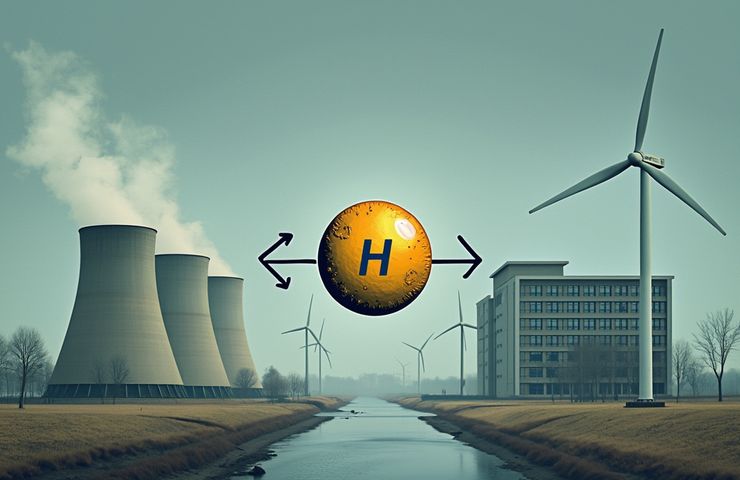
EU Delay Puts Nuclear-Produced Hydrogen in Limbo—Industry Bristles at Uncertainty
May 15, 2025The European Commission is hitting pause on a big decision—whether nuclear-produced hydrogen should be labeled as ‘low-carbon’ under EU law. Instead of kicking off the discussion in June 2026 as initially planned, they’ve now set the final call for July 2028. That’s a two-year delay, and it’s got people talking.
For countries like France, which support the use of nuclear energy in hydrogen production, this new timeline feels like a setback. Industry advocates like Nuclear Europe argue that postponing the decision throws a wrench into the EU’s broader industrial decarbonization goals—especially the target of producing 10 million tonnes of renewable hydrogen by 2030.
Nuclear hydrogen projects left hanging
This delay leaves major nuclear electrolysis projects in a gray area. Without clear guidance, companies and governments alike are left guessing what role nuclear might play in building out future hydrogen infrastructure. And with no word from Brussels for a few more years, there’s a growing risk that individual member states, like France, could go rogue and set up their own certification systems for nuclear hydrogen.
What’s next?
All eyes are now on an expert committee slated to meet on May 16–17 to review a working draft of the upcoming framework. It’s too soon to tell what direction the EU will take, but the delay has stirred up a tough question: How can the EU stay committed to green hydrogen and other renewables while still being realistic about practical, low-carbon solutions like nuclear?
One thing’s clear—this isn’t just a technical debate. It’s a real-world issue with big implications for Europe’s climate plans, its energy economy, and the speed at which hydrogen technologies can scale up across the continent.



 With over 15 years of reporting hydrogen news, we are your premier source for the latest updates and insights in hydrogen and renewable energy.
With over 15 years of reporting hydrogen news, we are your premier source for the latest updates and insights in hydrogen and renewable energy.